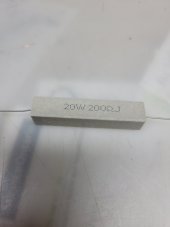1 day ago
Question: I have a 150Amp "ignition protected" circuit breaker/switch between the battery bank and the inverter. It is always off when I plug in the batteries, and I use Anderson SB175 plugs on the battery terminals. I turn on the circuit from the switch. Do I still have risk of sparking/arcing at the battery terminals? I would think the risk is at the circuit breaker itself as the lugs on the battery are very well secured when the circuit goes live. I didn't see anything with my 12V AGM batteries and 1200 Watt inverter, but I am about to swap out the AGMs with LiFePO4s. Will the lower resistance from the LiFePO4s cause this to be an issue when it wasn't with the AGMs? The following year I might move to 24V and a 2000 Watt inverter. I won't be going larger for sure. Is it then that I have to factor in the pre-charge? or am I still too small? I will probably have to build a by-pass circuit to do the pre-charging since there are no loose wires to just touch the way it is shown in the video. My setup is for camping with everything except the batteries pre-connected and wired on a wooden back-board, with circuit breakers on every inter-connect (solar panels, inverter, load, and small fuse box for individual 12V power distribution). The batteries and the board plug in via Anderson SB175s. Power on sequence is first the fuse between the batteries and the solar charger, then the fuse between the battery and the inverter, and finally the fuse between the panels and the solar charger. Looking for advice.



